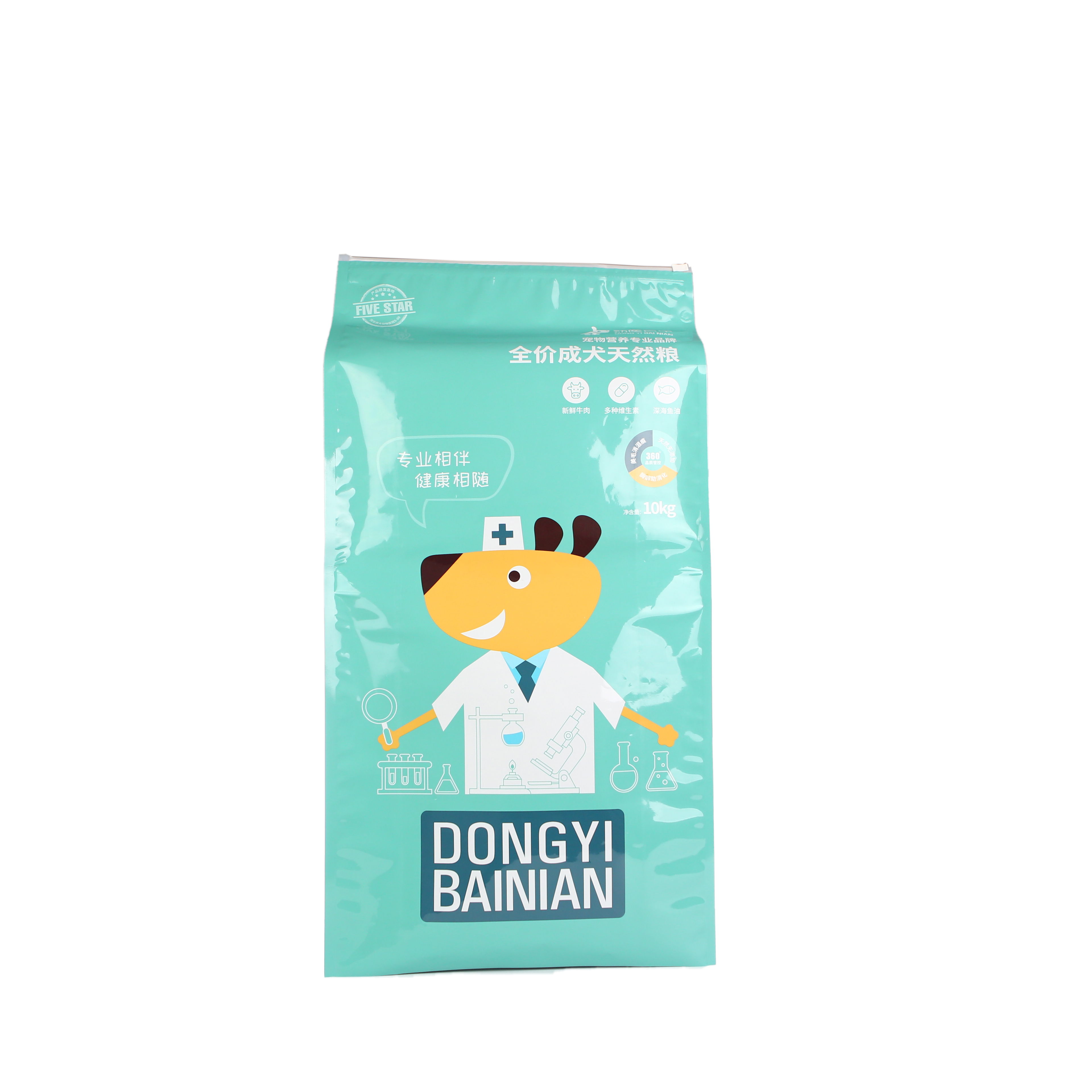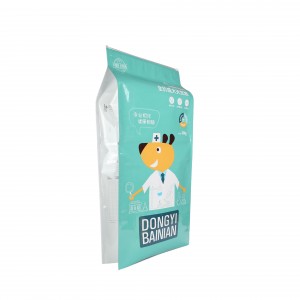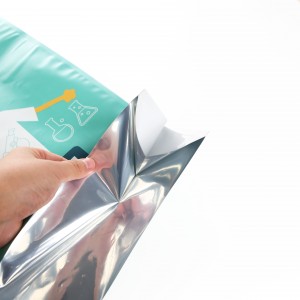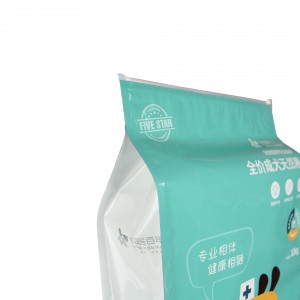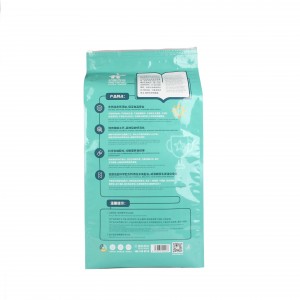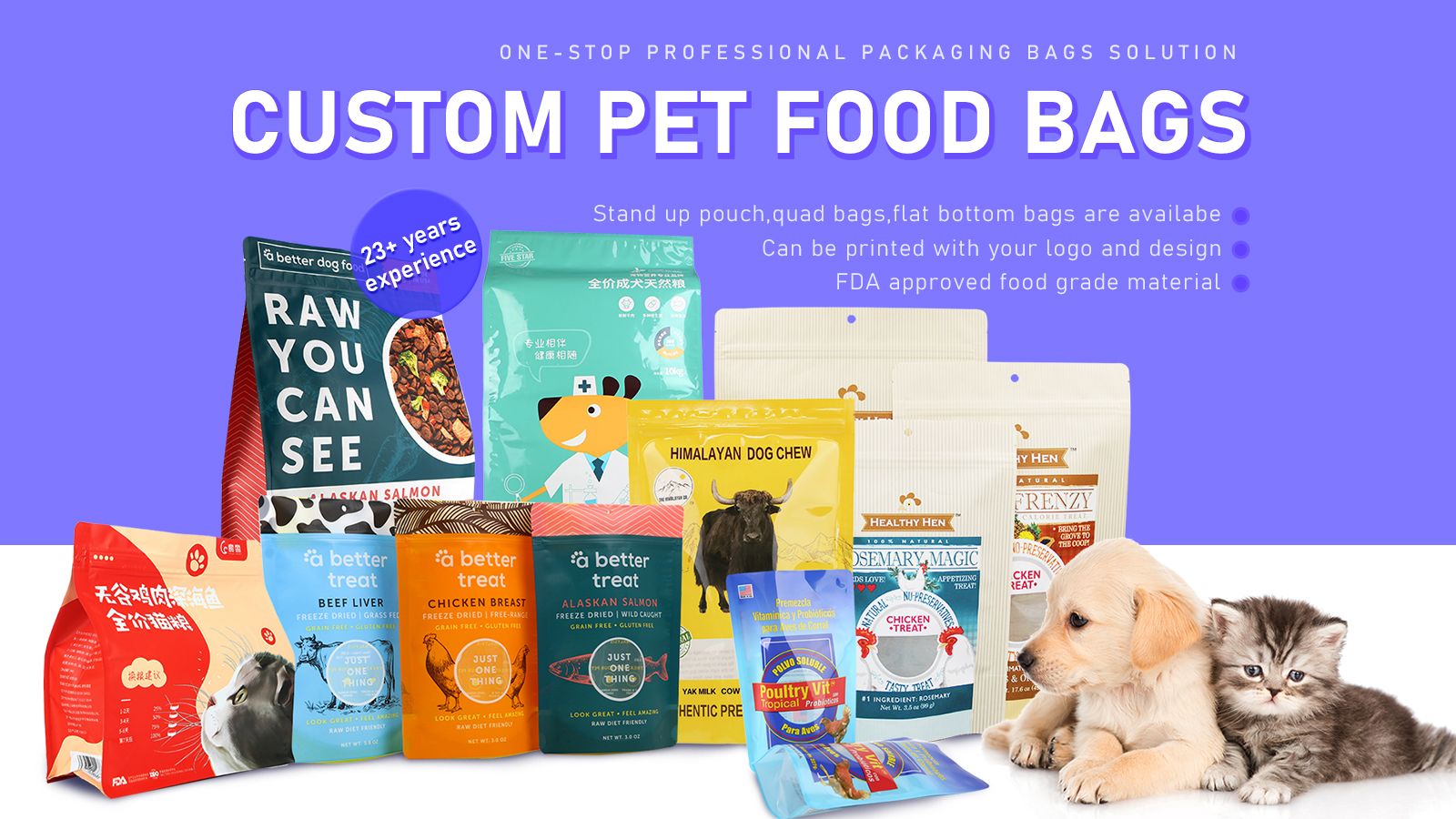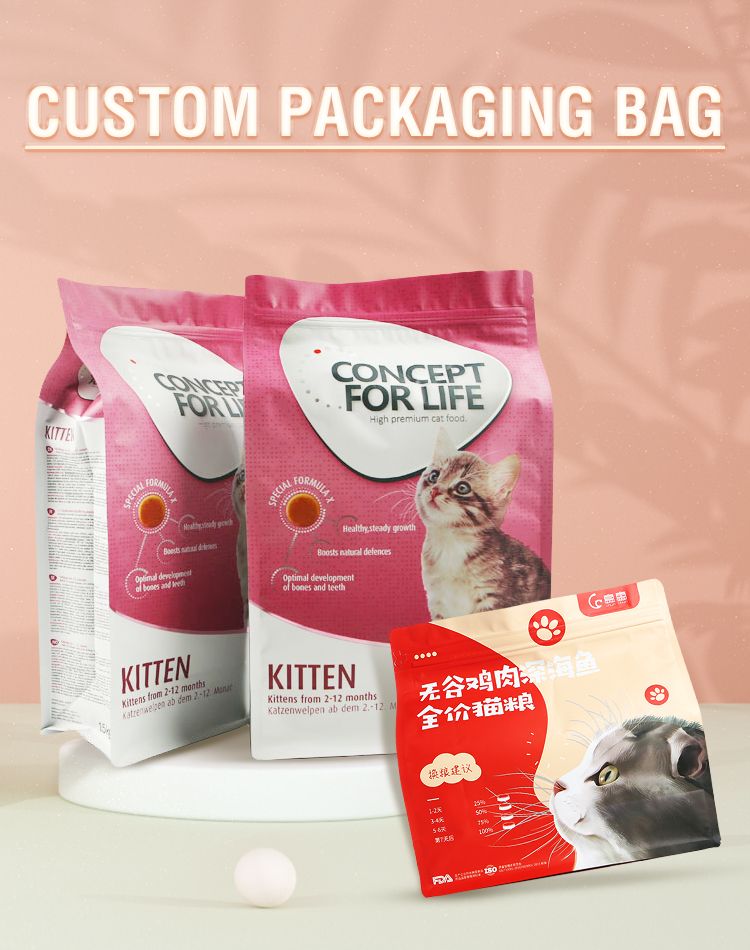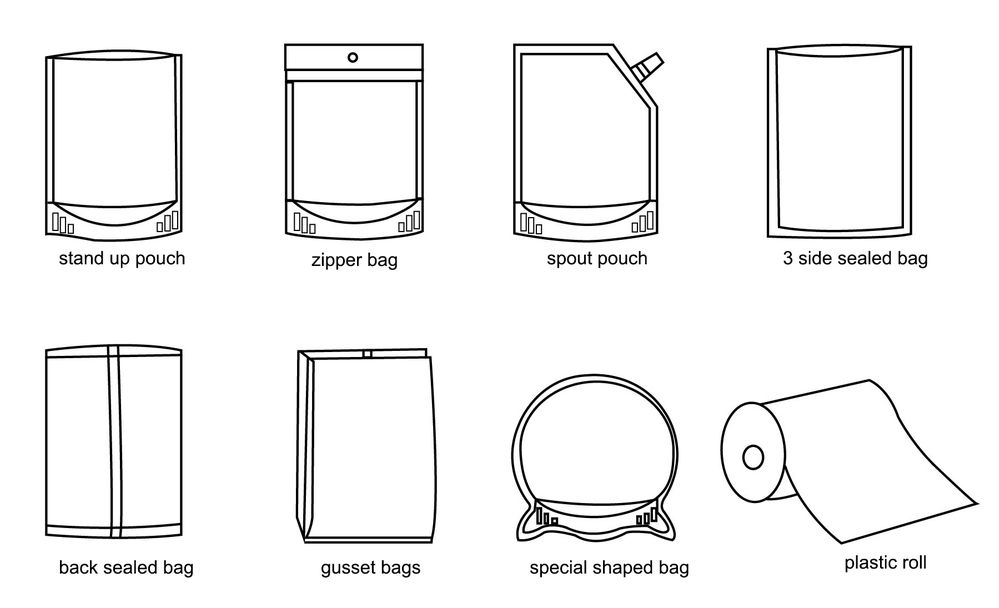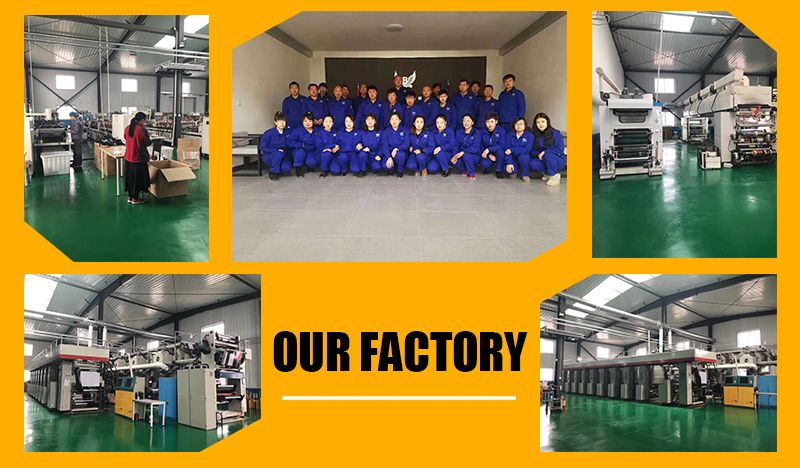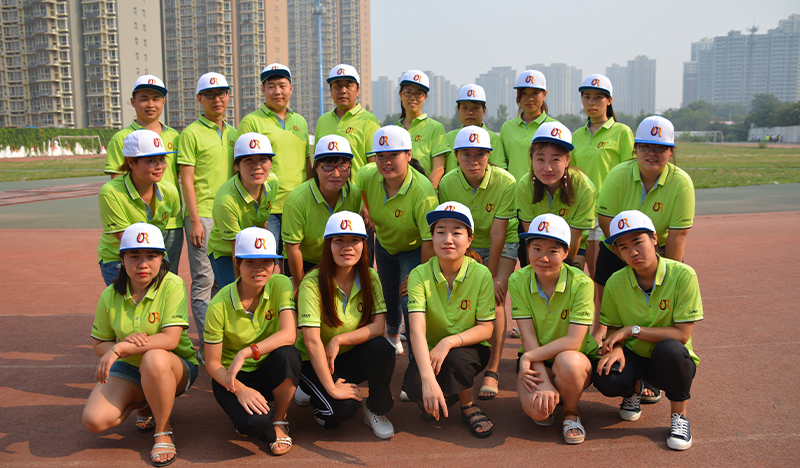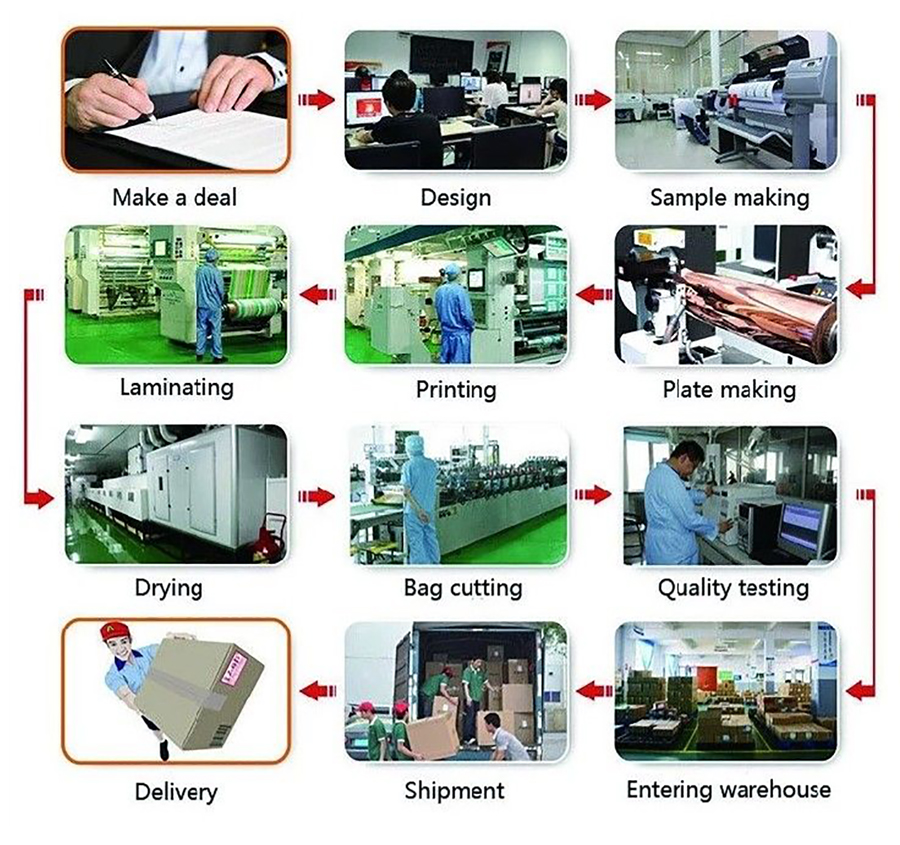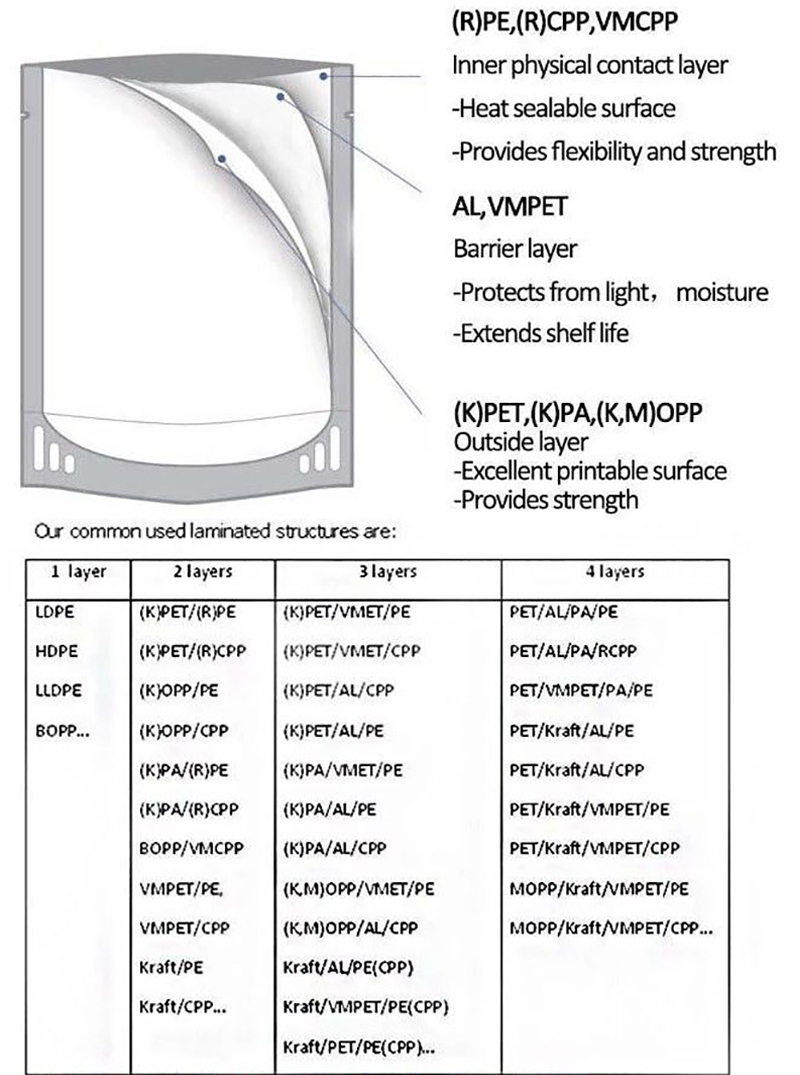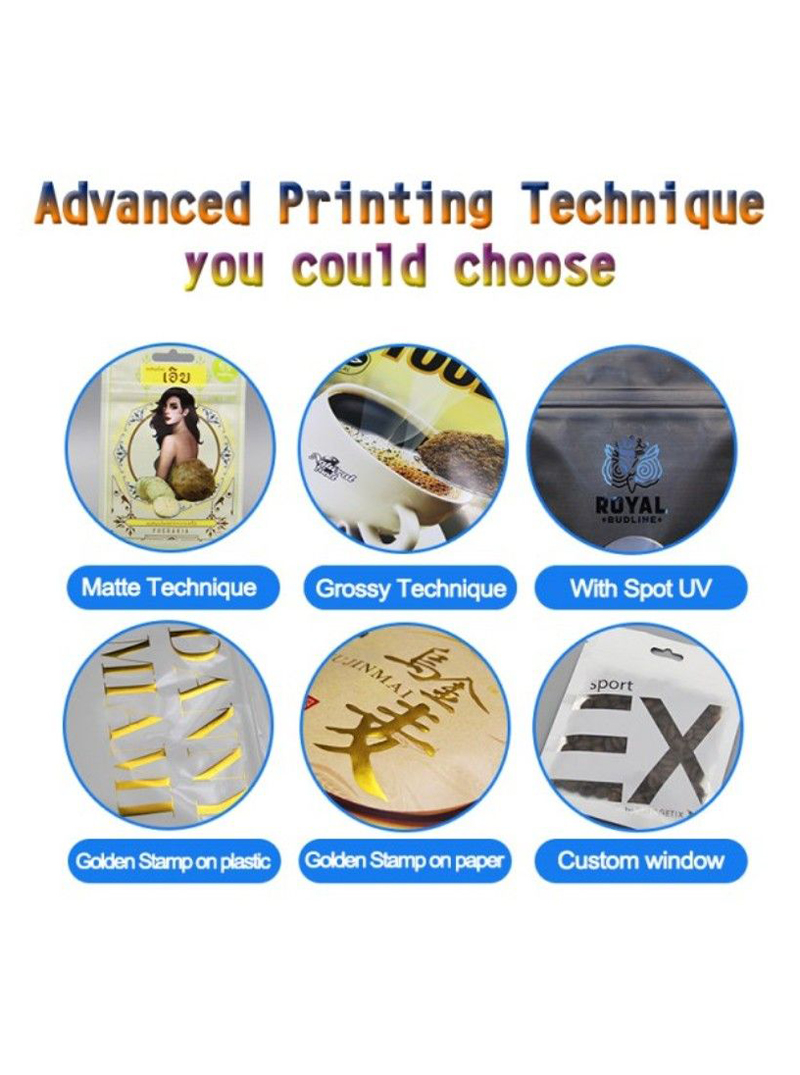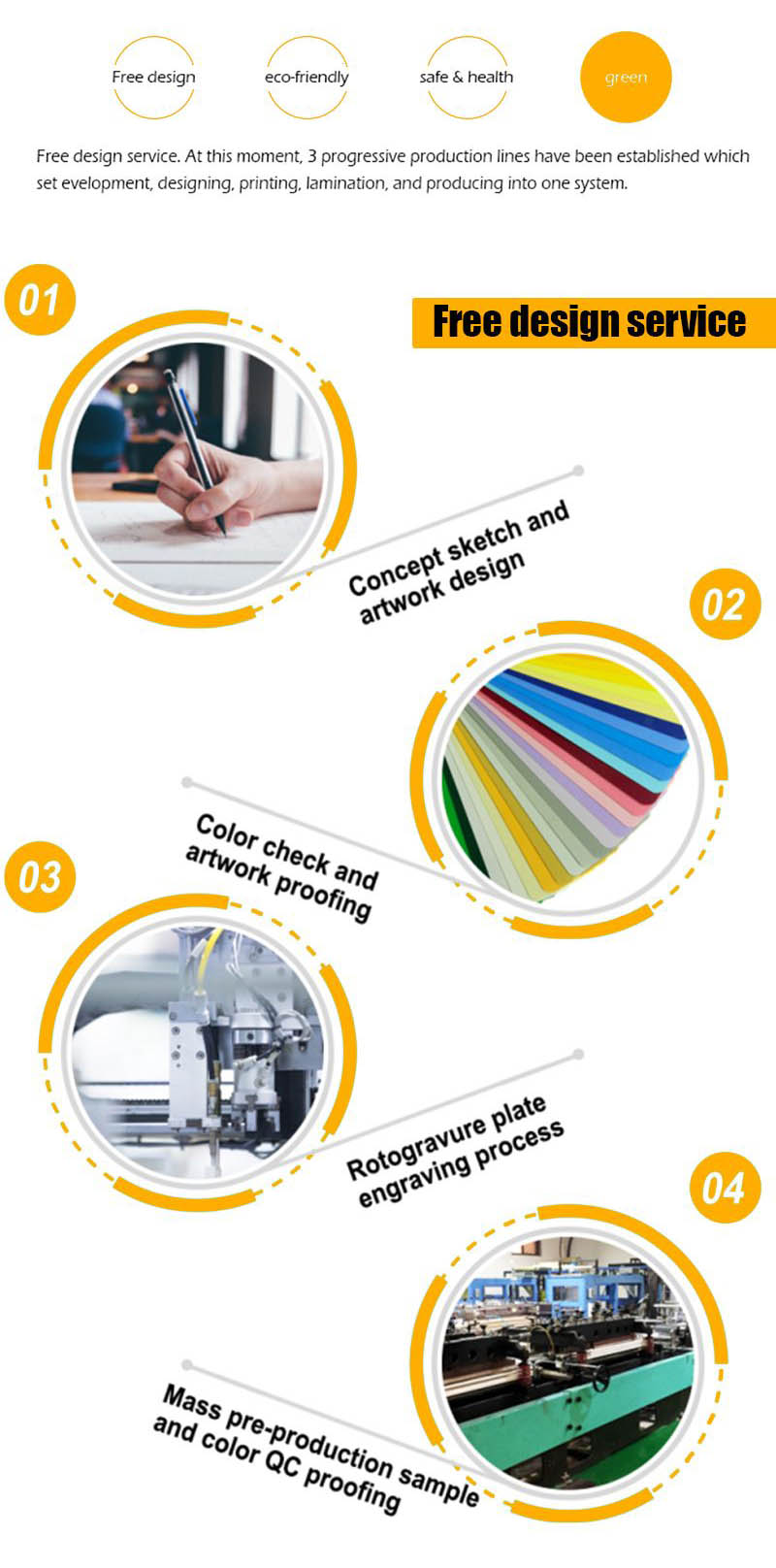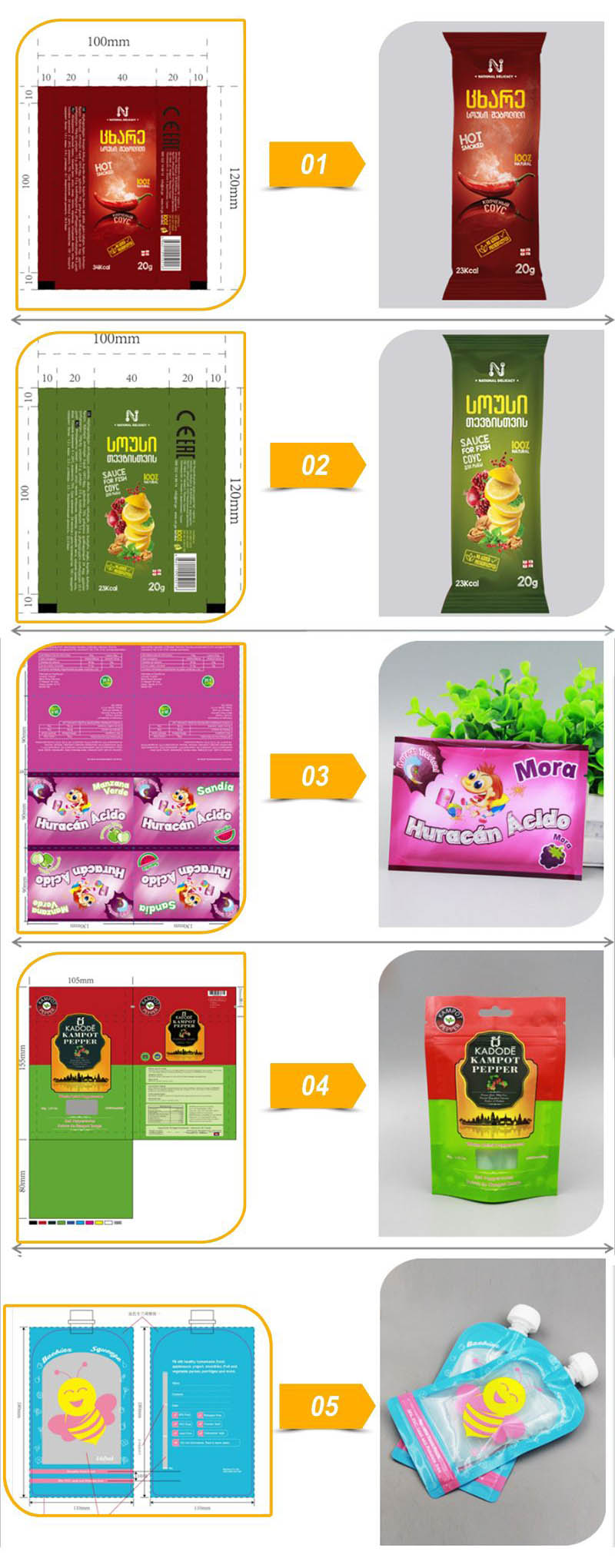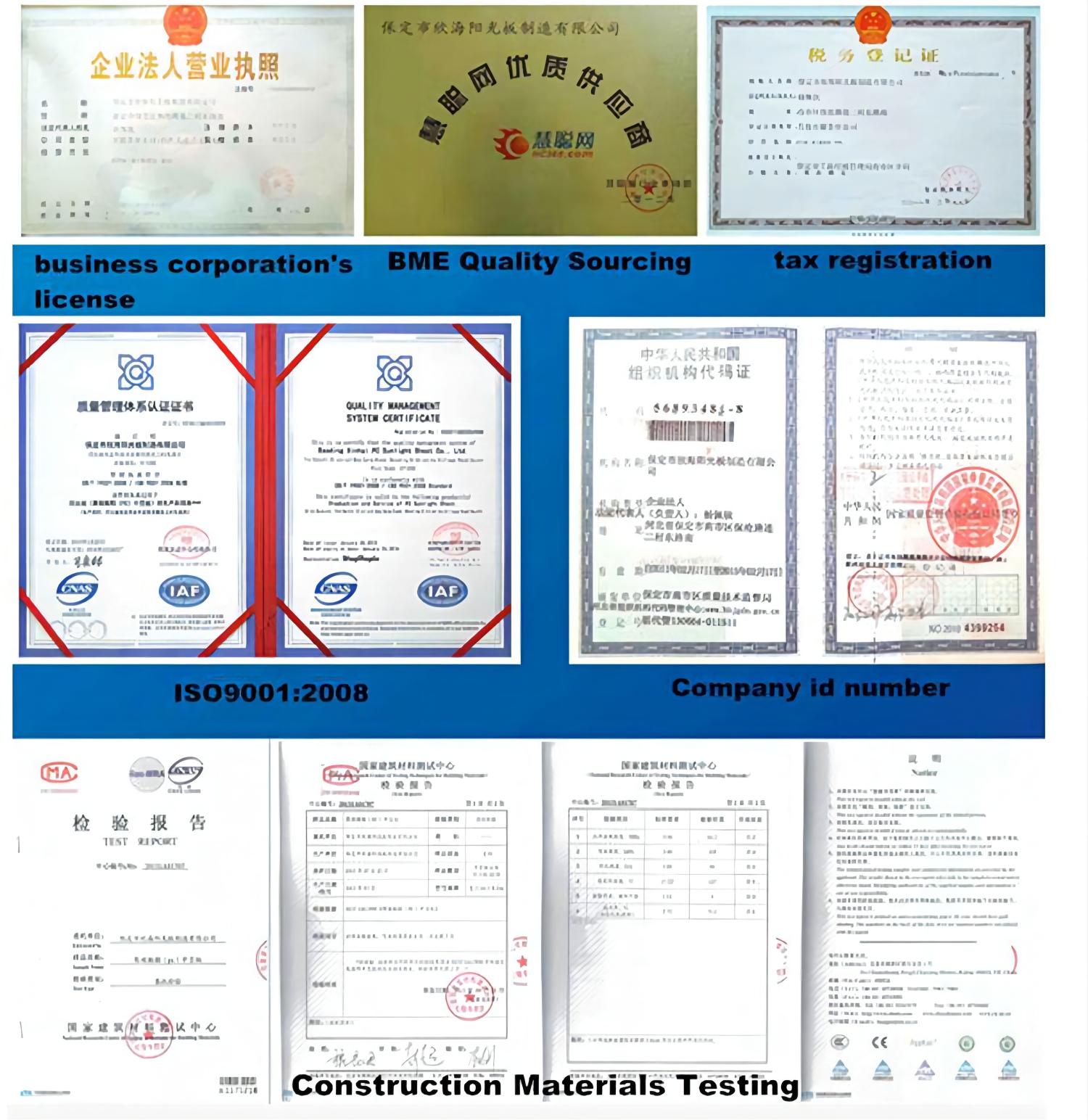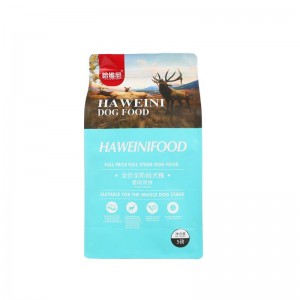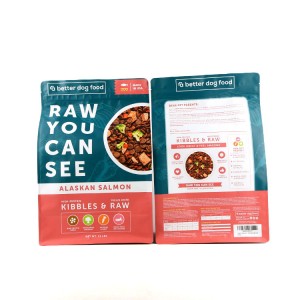
Products
Customized Pet Food Bag Packaging Manufacturers 250g. 500g. 1000 Grams Of Food Grade Packaging Bags
Customized Pet Food Bag Packaging
Branding and Design: Customization allows pet food companies to incorporate their branding, logos, and unique designs on the bags. This helps create a strong brand identity and attracts customers' attention.
Size and Capacity: Pet food bags can be customized to different sizes and capacities to accommodate various types of pet food, whether it's dry kibble, wet food, treats, or supplements.
Material: The choice of material for the bags can be customized based on the product's requirements. Common materials for pet food bags include paper, plastic, and laminated materials that provide durability and protection.
Closure Types: Customized pet food bags can feature different closure options, such as resealable zippers, spouts for pouring, or simple fold-over tops, depending on the product's needs.
Special Features: Customized bags can include special features like clear windows to display the product, handles for easy carrying, and perforations for easy opening.
Nutritional Information and Instructions: Customized bags can include space for nutritional information, feeding instructions, and any other relevant product details.
Sustainability: Some pet food companies may choose to emphasize eco-friendly packaging by using recyclable or biodegradable materials and including eco-conscious messaging.
Regulatory Compliance: Ensure that customized pet food bags meet the regulatory requirements for pet food packaging in your region, including any necessary labeling.
Order Quantity: Customized packaging can often be ordered in various quantities, ranging from small batches for local businesses to large-scale orders for national or international distribution.
Cost Considerations: The cost of customized pet food bags can vary based on the level of customization, material choice, and order quantity. Smaller runs may be more expensive per unit, while larger runs can reduce the cost per bag.

